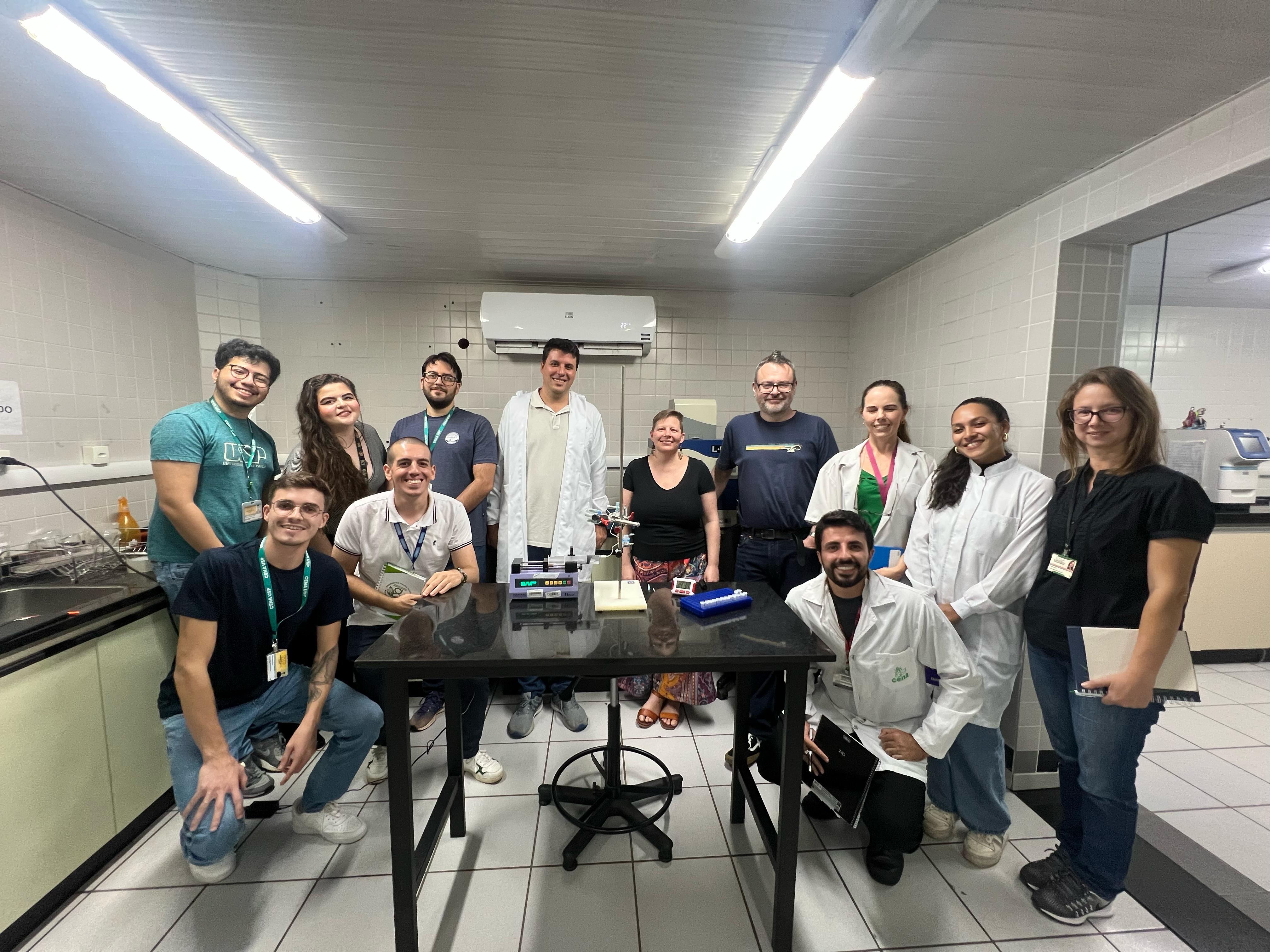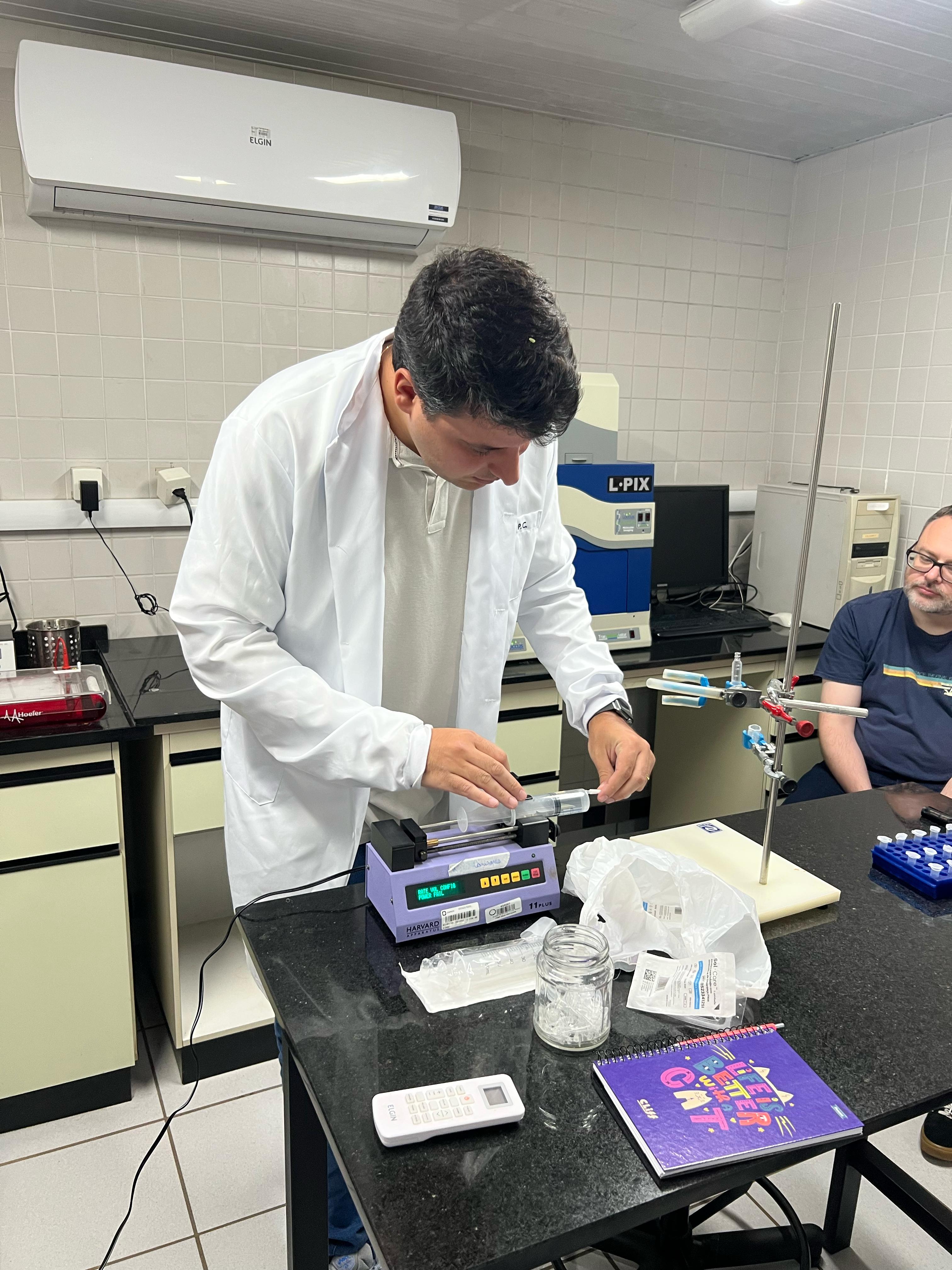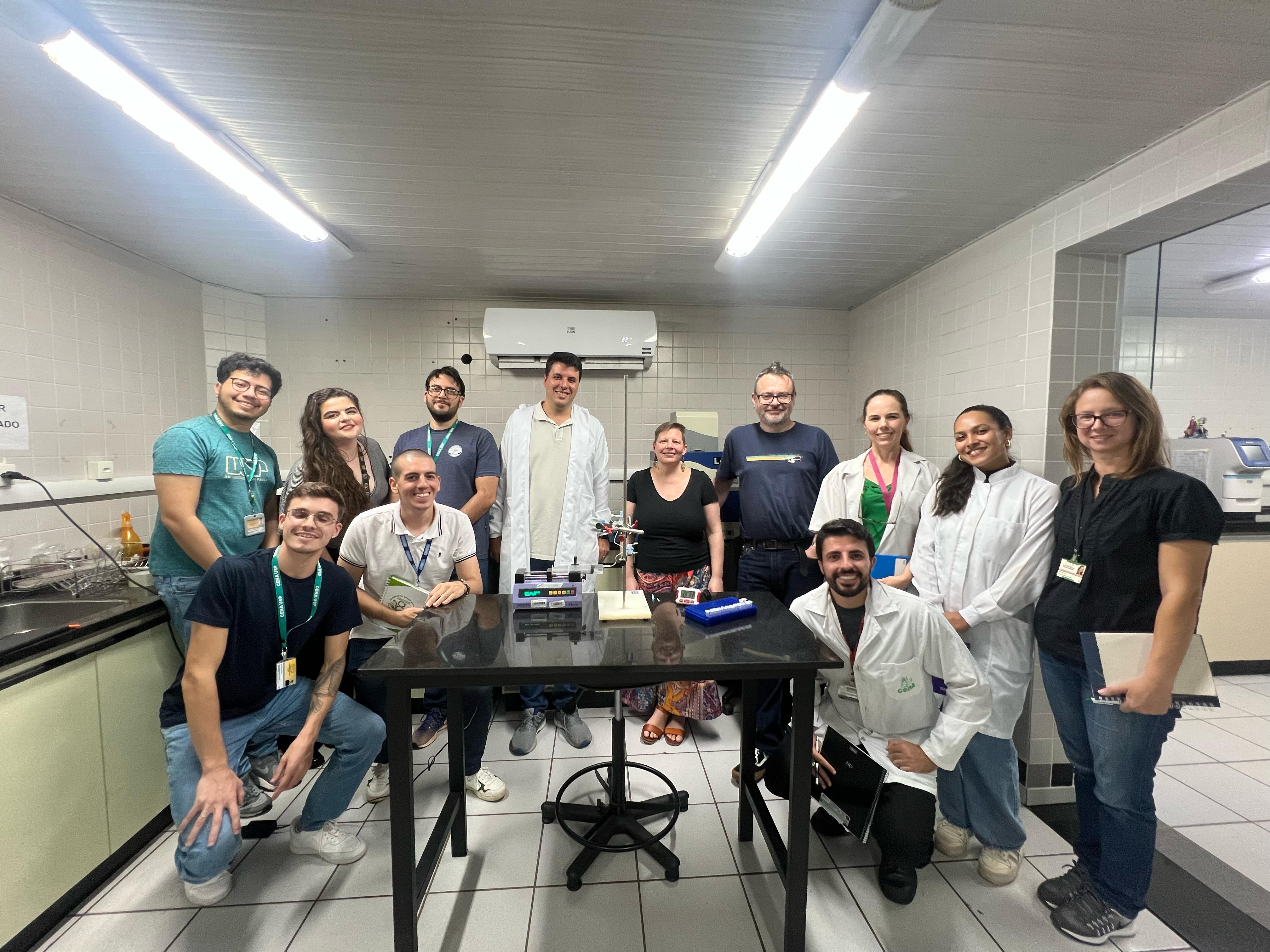Researchers from the École Centrale de Lyon conduct Stable Isotope Probing training in CENA/USP
During the last half of March, Dr. Graeme Nicol and Dr. Christina Hazard from the École Centrale de Lyon visited the Cellular and Molecular Biology lab at CENA/USP to lead an intensive DNA-SIP (stable-isotope probing) training. During the week, students and researchers were immersed in hands-on activities, ranging from the ¹³C-labeling soil techniques and experimental designs to DNA extraction, gradient ultracentrifugation, and fraction collection.
Beyond protocols, Dr. Graeme and Christina shared case studies that connected DNA-SIP results to real-world questions. Dr. Graeme illustrated how ammonia-oxidizer communities shift under different land-use regimes, while Christina showed how linking community structure to carbon-processing genes can predict soil resilience to drought. Their visit not only equipped us with practical skills but also sparked new ideas for investigating microbial drivers of carbon and nitrogen cycling in tropical soils.
This training was organized by Dr. Lucas Pecci Canisares, and sponsored by the Cellular and Molecular Biology lab, coordinated by Prof. Tsai Siu Mui, and by the Center for Carbon Research in Tropical Agriculture (CCARBON)—many thanks for their collaboration and this incredible learning opportunity.




Enjoy Reading This Article?
Here are some more articles you might like to read next: